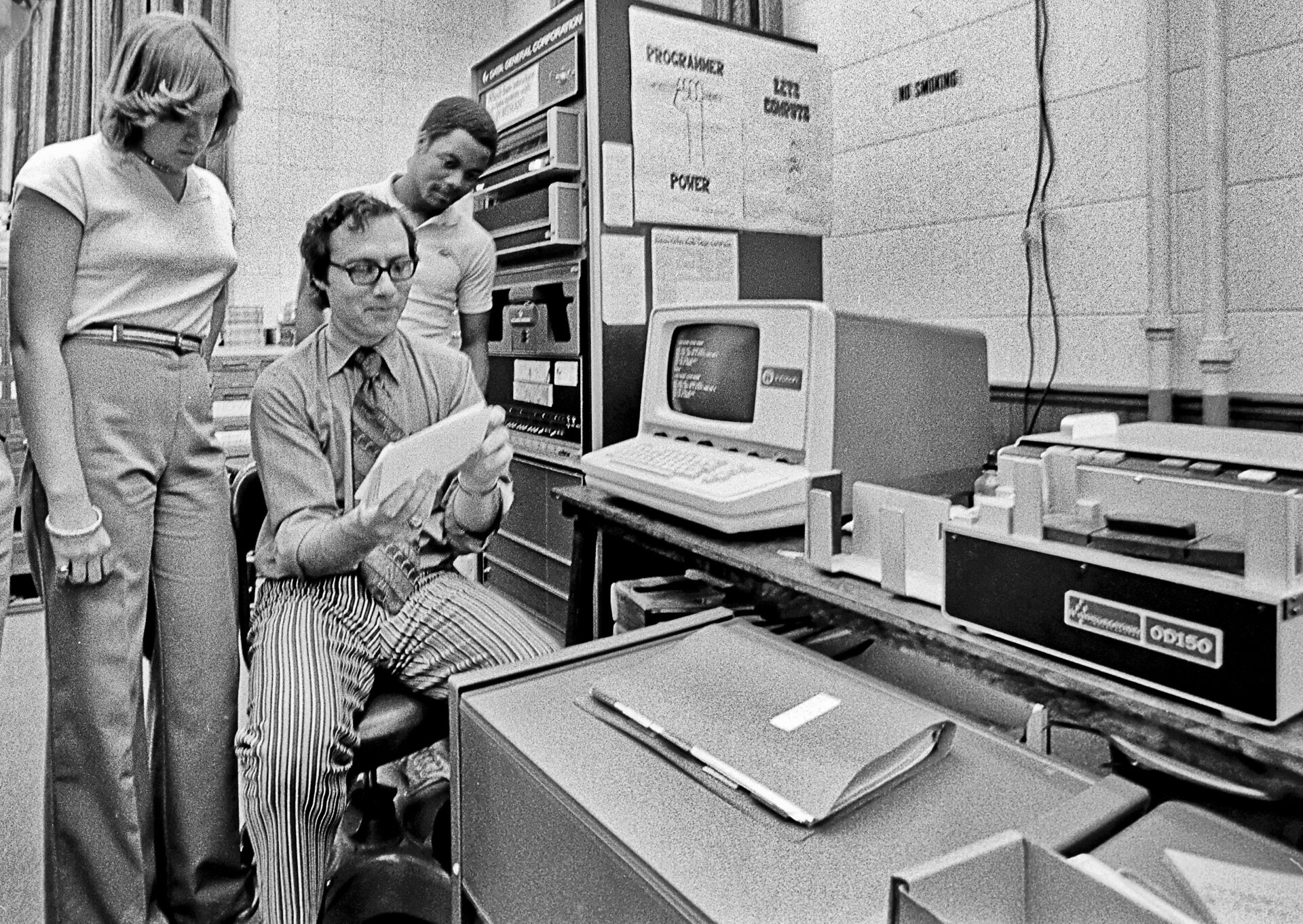We live today in an information society. Such a society is the result of a long evolution from the development of writing, to movable type, to the high-speed printing press, to the typewriter and carbon paper and the office duplicating machine. More than any other development, however, it has been the exceptionally rapid growth of computer technology—and the application of that technology to education, information retrieval, and word processing—that has changed the way we look at learning. The sociology of knowledge has changed.
Today much of humanity, especially in the West, is visually oriented. People learn from images— whether on television or a computer console—rather than from linear type. This new mode of learning has changed speech, promoted new skills, and made it possible to assemble, sort, and retrieve incredible amounts of data.
It has also led some people to confuse data (items of information) and creative thinking. Thus, many observers of the new high-technology societies of the West and Japan feel that the period since about 1975 (when historians of the computer, such as those quoted below, say that society entered an “advanced third-generation computer age”) has brought more rapid changes than any single generation has experienced before.
These changes relate to unemployment created by technological changes and the threat of such unemployment; to vast transformations in the city as a communications center; to transportation, social relationships, finance, the arts, the use of leisure time; and to the nature of government and the challenge that pervasive government knowledge about its citizens poses to concepts of individuality and privacy.
Cooperation among individuals will become increasingly necessary and probably will be enforced by strong central—perhaps totalitarian—governments aided by computers acting as sources of information. Who shall this all-powerful and pervasive government be? Political scientists have suggested that some form of worldwide government is inevitable. Only time can prove the accuracy of these predictions.
One thing, however, is certain—that government, whether a single global or a variety of national ones, will rely increasingly on the computer. The nature of any form of government requires that its citizens be kept track of. For, even in a feudal system, a knowledge of the subjects— their financial states and their major concerns—as well as a possession of some degree of their good will is mandatory. When the number of people being governed becomes as large as that with which future states shall have to contend, some extraordinary means of tabulation will be vitally necessary. The computer is that means.
Some people believe optimistically that not even a computerized spy ring would be able to control all possible movements of all people at all times. The past decade has witnessed the rise of an “underground” that is not really limited to newspapers and political movements. … Certainly, it is easy enough for an individual to lose himself among the masses of an urban area; this has been demonstrated more than once. All that need be done is to conform to certain surface expectations, such as dress and overt behavior. What you do in your own cubbyhole or in your own mind cannot be traced.
Individuality, despite governmental control of so many facets of life, thus might be maintained to some extent.
A more pessimistic approach suggests that no degree of individual freedom would be possible. The cashless society [of the credit card] would mean that no one could “hide.” The government might find it expedient to create the illusion of freedom and even permit the existence of some rebellious groups, but these would be carefully controlled and manipulated. …
Quite possibly, there will be choice enough, perhaps too much, at least in most areas of life, simply because it would require too much effort, even using the most advanced technology, for a government to control every aspect of the existence of every individual under its power. Consequently, the majority of activities might be observed, but restrained only loosely. When given a choice of flying to the Bahamas, London, Tokyo, or Greece, of attending lecture or discussion sessions on several hundred different topics, of painting a picture or reading a book, of going to the gym, the museum, or to a circus all in one day, the average person might stay in bed and sleep, simply to avoid making the decision.
However, once again the computer could come to the rescue. Having been programmed according to the individual’s tastes, the home computer could simply set up a schedule of activities for the person to follow. Thus, computers could limit man’s freedom, but only under his orders. …
Possibly the only limitation on the computer’s usefulness is man’s imagination. Dependence on the computer, whether developed with moderation or whether indulged to the fullest extent, places the responsibility for the course of society on the persons who program, coordinate, and oversee the workings of those computers. Thus, we are brought back full circle to the question: who shall the government be? The answer is that the government will be the person or persons who control society’s major tool, the computer.

